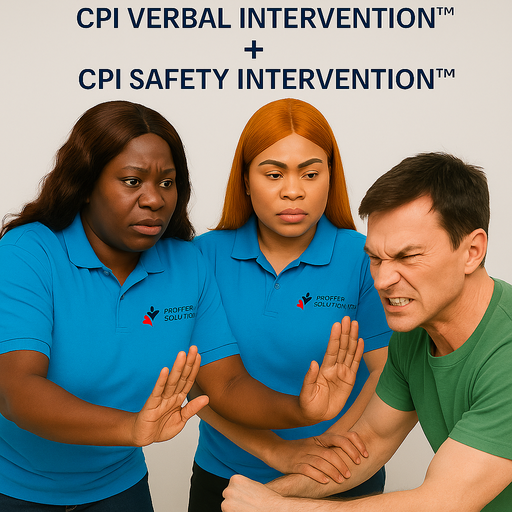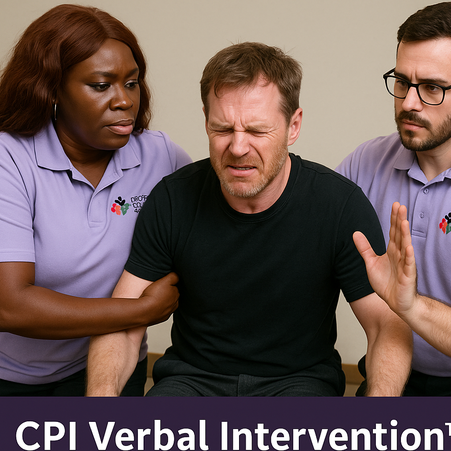
MAPA
Course Details
MAPA® stands for the Management of Actual or Potential Aggression, a comprehensive framework designed to address and de-escalate aggressive behaviour effectively. This approach, which is NHS approved, emphasizes the importance of responding to individuals with a non-judgmental attitude, ensuring that each person is treated with the utmost respect and dignity. Central to MAPA® is the commitment to fostering a safe environment, which includes employing techniques that minimize the risk of harm for both the individual and the surrounding community. The framework encourages practitioners to understand the underlying triggers of aggression and to implement strategies that not only manage immediate situations but also promote long-term emotional well-being and conflict resolution skills. Ultimately, MAPA® aims to empower individuals to regain control and feel secure, thereby contributing to a supportive and positive atmosphere.

Benefits
1. Enhanced understanding of behavioural triggers: Participants gain insight into the signs and triggers of aggressive behaviours, enabling early intervention.
2. Practical de-escalation techniques: The course equips professionals with effective verbal and non-verbal communication skills to calm distressed individuals and reduce tension in high-risk situations.
3. Improved risk assessment skills: Trainees learn to conduct thorough evaluations of potentially aggressive situations, ensuring the safety of all individuals involved.
4. Creation of safe environments: Participants are encouraged to establish both physically and psychologically safe spaces, fostering a culture of respect and support.
5. Ethical physical intervention practices: The programme teaches techniques that prioritise the dignity and safety of all individuals, minimising harm during necessary interventions.
6. Evidence-based communication strategies: The training provides participants with effective communication approaches based on research, improving interactions with individuals in conflict.
7. Increased professional confidence: The skills acquired through the course empower professionals to handle challenging situations with greater assurance and competence.
8. Promotion of positive workplace culture: By adopting a respectful approach to aggression management, organisations can foster a healthier and more collaborative workplace environment.
9. Enhanced overall safety and effectiveness: Teams that participate in MAPA training are better equipped to manage conflicts, contributing to improved outcomes in their respective fields.
10. Long-term benefits for individuals and organisations: The knowledge and skills gained from the course not only benefit professionals but also positively impact the overall functioning and safety of the organisati
Thank you for using our services. If you have any questions or issues, please contact us at 0121 630 4005 or email us at info@proffersolutionltd.co.uk. We are here to help.



Kindly proceed with the payment after submitting the form and email your proof of payment to courses@proffersolutionltd.co.uk

